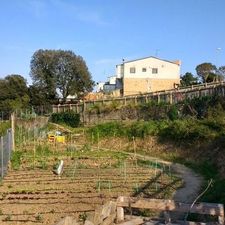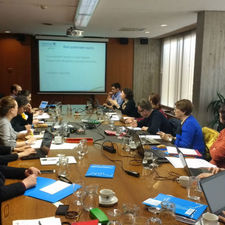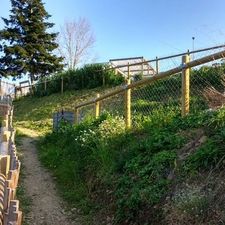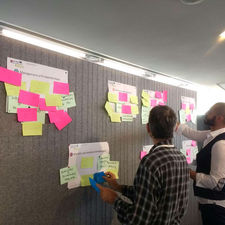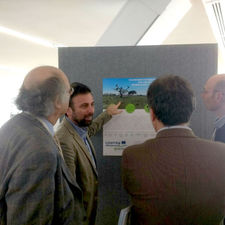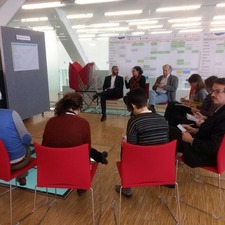MADRE and PANACEA start their work
| Subject: International Relations, Sustainability
The MedCities environmental sustainability projects start their first workshops.
Two new international projects, co-financed by the Interreg MED program, in which the AMB participates through the General Secretariat of MedCities, held their first meetings in mid-March: MADRE (Metropolitan Agriculture for Developing an innovative, sustainable and Responsible Economy) in Barcelona, and PANACEA (Streamlining Networking and Management efforts in Mediterranean Protected Areas for Enhanced Conservation of Natural and Capital Heritage), in Marseille.
MADRE
From 14 to 15 March, MedCities, supported by AMB, was responsible for organising the seminar to launch the project in Barcelona during which the members (AVITEM, the Bologna metropolitan area, the Aristotle University of Thessaloniki, the Agricultural University of Tirana, the International Center for Advanced Mediterranean Agronomic Studies, Anima Investment Network and MedCities, in addition to working on the plan of action, management and communication for the project with roundtables and discussions at the headquarters of AMB, were able to visit examples of metropolitan good practices, such as Can Pinyol, the social allotment resulting from the SIDIG-MED pilot project, and the Parc Agrari del Baix Llobregat.
The aim of MADRE is to launch a transnational cluster focusing on metropolitan agriculture, to develop an approach to ecological innovation, and to thereby contribute not only to the general objectives of green growth, but also to inclusive growth.
The project involves the creation of six metropolitan working groups, located in Barcelona, Montpellier, Bologna, Marseilles, Tirana and Thessaloniki, consisting of representatives of local authorities, consumers, producers and academia, to analyse practices and reflect on needs and improvements in metropolitan agriculture (creation of work, social inclusion, organisation and logistics, health and consumption habits, territorial cohesion and mitigating the effects of climate change). A policy paper will be produced at the end of the project, containing policy recommendations for the development of metropolitan agriculture in the Mediterranean.
MedCities will be responsible for monitoring the capitalisation work package, coordinating the other members, and organising various meetings and technical visits for the exchange of good practices.
PANACEA
From 15 to 16 March, Marseille hosted the workshop launching the project, with the participation of over 60 representatives of institutions in the Mediterranean, including the members of the PANACEA—the University de Malaga European Topic Centre (UMA-ETC), Plan Bleu (France), Conference of Peripheral Maritime Regions (CPMR, France), Mediterranean Universities Union (UniMed, Italy), Regional Environmental Centre-Montenegro (REC, Slovenia) and MedCities— the main regional actors, international organisations and members of the nine modular projects in the Med Programme in the same area in which PANACEA is working. The objective was to establish a common roadmap enabling them to channel their efforts towards the effective protection of natural resources in the Mediterranean, based on governance and management of coastal and marine areas, monitoring biodiversity, the sustainable use of natural resources, climate change and scientific methodologies, and innovation, over the next three years and with a budget of almost 18 million Euros among all the projects involved.
The aim of PANACEA, and of MedCities in particular, is to contribute to maintaining biodiversity and natural ecosystems by coordinating networking and the management of protected areas, while promoting communication between the actors with participatory techniques.
Register to the PANACEA's newsletter: Biodiversity Protection Community














































